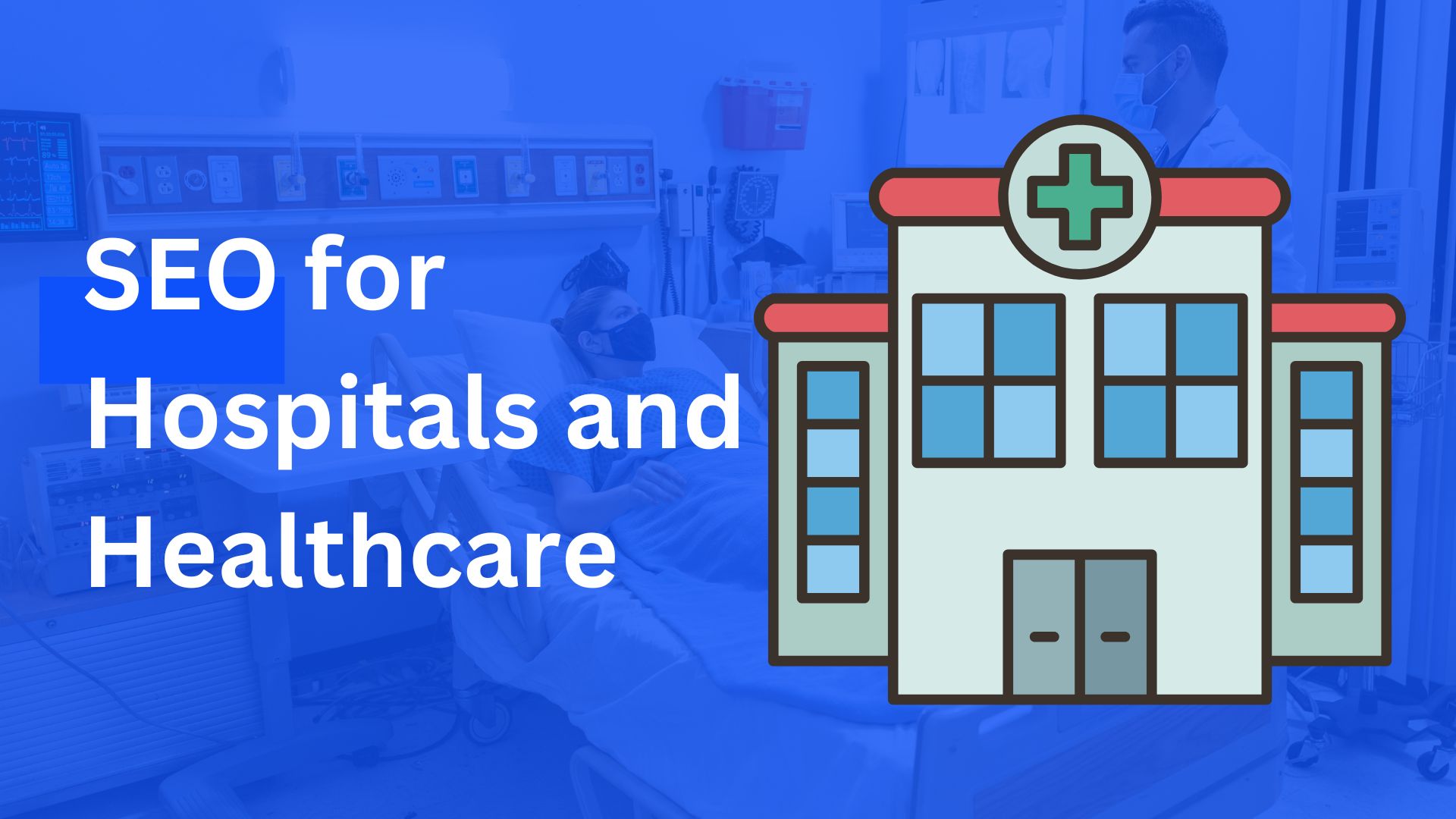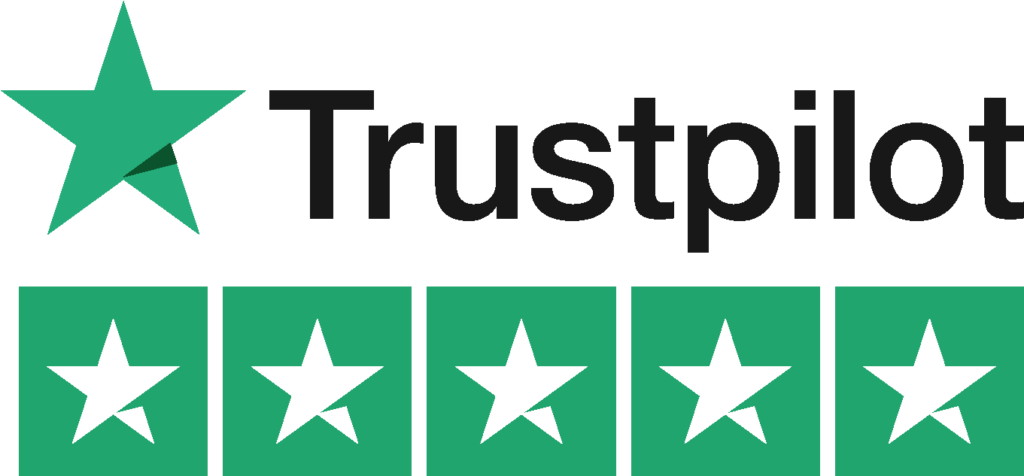As a healthcare provider, you know that the quality of care you provide to your patients is of the utmost importance.
But in today’s digital age, it’s not just the care you provide in the hospital or clinic that matters – it’s also the online experience you offer to potential and current patients.
That’s where search engine optimization (SEO) comes in.
SEO is the practice of improving the ranking of a website on search engines like Google. By optimizing your website for relevant keywords and phrases, you can increase the visibility of your hospital or healthcare organization online and attract more qualified traffic to your site.

Table of Contents
Why is SEO important for hospitals and healthcare?
There are a few key reasons why SEO is especially important for hospitals and healthcare providers:
- Healthcare is a competitive industry: There are likely many other hospitals and healthcare providers in your area vying for the same patients.
By optimizing your website for relevant keywords, you can differentiate your organization from the competition and attract more qualified leads. - Patients use search engines to find healthcare information: Whether they are looking for a new primary care physician or trying to self-diagnose a medical issue, many patients turn to search engines for healthcare-related information.
By appearing at the top of search results, you can position your hospital or healthcare organization as a trusted source of information and potentially attract new patients. - Online reviews and ratings are important: In the healthcare industry, online reviews and ratings can be a crucial factor in a patient’s decision-making process.
By appearing at the top of search results, you can increase the likelihood that potential patients will see positive reviews and ratings about your organization. - Mobile optimization is essential: With the rise of smartphone usage, it’s more important than ever for hospitals and healthcare providers to have a mobile-friendly website.
Not only do search engines like Google favor mobile-optimized sites, but patients are also more likely to use their smartphones to find healthcare information on-the-go.
Challenges and opportunities for SEO in the healthcare industry
While SEO can be beneficial for hospitals and healthcare providers, there are also some unique challenges to consider.
One challenge is that the healthcare industry is heavily regulated, which can make it difficult to use certain SEO tactics.
For example, you may be limited in the types of keywords you can target due to HIPAA regulations. It’s important to be familiar with these regulations and work with a trusted SEO partner who understands the industry’s constraints.
Another challenge is that the healthcare industry is constantly evolving, with new treatments and technologies emerging all the time. This means that it’s important to regularly update your website with fresh, relevant content to keep up with industry developments and maintain your search engine rankings.
Despite these challenges, there are also many opportunities for hospitals and healthcare providers to take advantage of SEO.
For example, local SEO – which focuses on optimizing your online presence for a specific location – can be especially effective for hospitals and healthcare providers.
By optimizing for local keywords and building local citations (like online directories and review sites), you can increase your visibility for patients searching for healthcare services in your area.
Keyword research for hospitals and healthcare
Keyword research is an essential part of any SEO strategy, and it’s no different for hospitals and healthcare providers. By identifying the most relevant and valuable keywords for your organization, you can optimize your website’s content and structure to rank for those keywords and attract more qualified traffic.
Where do you start with keyword research?
Here are a few tips:
- Start with your website’s content: Take a look at the content on your website, and make a list of the keywords and phrases that are most relevant to your hospital or healthcare organization. These will be your starting point for keyword research.
- Use keyword research tools: There are many tools available that can help you identify additional relevant keywords. Some popular options include Google’s Keyword Planner, SEMrush, and Ahrefs. These tools can help you identify both high-volume and long-tail keywords (more specific, longer phrases) that may be valuable for your organization.
- Consider your target audience: When identifying keywords, it’s important to consider who your target audience is and what types of terms they are likely to use when searching for healthcare information. For example, if you are a pediatric clinic, you may want to focus on keywords related to child health and wellness.
- Don’t forget about local keywords: Local SEO can be especially effective for hospitals and healthcare providers. Make sure to include local keywords, like the name of your city or region, in your keyword research to optimize for local search.
Once you have identified a list of target keywords, the next step is to optimize your website’s content and structure for those keywords.
Here are a few tips:
- Incorporate keywords into your website’s content: Make sure to use your target keywords in the content on your website, including blog posts, page titles, and meta descriptions. However, be careful not to overdo it – search engines may penalize websites that stuff their content with too many keywords.
- Use header tags: Header tags (H1, H2, etc.) can help search engines understand the hierarchy of your content and give additional context to your target keywords. Make sure to include your target keywords in your header tags.
- Use alt tags for images: Alt tags (alternative text) are used to describe images and can give additional context to search engines about the content on your website. Make sure to include your target keywords in the alt tags for relevant images.
By following these tips for keyword research and optimization, you can improve your hospital or healthcare organization’s visibility in search results and attract more qualified traffic to your website.
Local SEO for hospitals and healthcare
Local SEO is a specific type of SEO that focuses on optimizing your online presence for a specific location. This is especially important for hospitals and healthcare providers, as many patients search for healthcare services within a certain geographic area.
Importance of local SEO for hospitals and healthcare providers
There are a few key reasons why local SEO is especially important for hospitals and healthcare providers:
- Many patients search for healthcare services locally: Whether they are looking for a new primary care physician or seeking treatment for a specific medical condition, many patients search for healthcare services within a certain geographic area.
By optimizing your online presence for local search, you can increase the likelihood that potential patients will find your hospital or healthcare organization. - Online reviews and ratings are important: In the healthcare industry, online reviews and ratings can be a crucial factor in a patient’s decision-making process. By optimizing for local search, you can increase the likelihood that potential patients will see positive reviews and ratings about your organization.
- Local SEO helps with mapping and navigation: Local SEO can also help patients find your hospital or healthcare organization more easily using mapping and navigation apps. By optimizing your online presence for local search, you can make it easier for patients to find your location and get directions to your facility.
Tips for optimizing your hospital or healthcare organization’s online presence for local search
So, how can you optimize your hospital or healthcare organization’s online presence for local search?
Here are a few tips:
- Claim your Google My Business listing: Google My Business is a free tool that allows you to manage your hospital or healthcare organization’s online presence on Google, including your location on Google Maps.
Make sure to claim your listing and provide accurate and up-to-date information about your organization, including your address, phone number, and business hours. - Get listed in online directories: There are many online directories that list healthcare providers in a specific area. Make sure to get your hospital or healthcare organization listed in as many relevant directories as possible.
- Encourage reviews and ratings: Online reviews and ratings can be a powerful local SEO signal. Encourage patients to leave reviews and ratings about their experience at your hospital or healthcare organization on sites like Google, Yelp, and Healthgrades.
- Use local keywords: Just like with traditional SEO, it’s important to use relevant local keywords in your website’s content and online profiles. This can include the name of your city, region, or neighborhood, as well as specific local landmarks or points of interest.
Examples of local citations and reviews that can boost your local SEO
There are many different types of local citations and reviews that can help boost your hospital or healthcare organization’s local SEO.
Here are a few examples:
- Online directories: Online directories like Google Maps, Yelp, and Healthgrades list healthcare providers in a specific area and can be a powerful local SEO signal.
- Local news and media: Mentioning your hospital or healthcare organization in local news articles or on local media websites can help boost your local SEO.
- Industry-specific directories: In addition to general online directories, there may be industry-specific directories that list healthcare providers in your area. For example, if you are a specialist clinic, there may be directories that list specialists in your area.
By following these tips and utilizing local citations and reviews, you can improve your hospital or healthcare organization’s local SEO and attract more qualified local traffic to your website.
Mobile optimization for hospitals and healthcare
As mentioned earlier, mobile optimization is essential for hospitals and healthcare providers in today’s digital age. Not only do search engines like Google favor mobile-optimized websites, but patients are also more likely to use their smartphones to find healthcare information on the go.
So, how can you optimize your hospital or healthcare organization’s website and online presence for mobile devices?
Here are a few tips:
- Make sure your website is responsive: A responsive website is one that adjusts its layout and design to fit the screen size of the device it is being viewed on. This ensures that your website is easy to navigate and use on a variety of devices, including smartphones and tablets.
- Use large, easy-to-read fonts: On a small mobile screen, it’s important to use large, easy-to-read fonts so that patients can easily read and navigate your website.
- Make sure your website loads quickly: Patients are more likely to bounce (leave) from a website that takes too long to load. Make sure to optimize your images and other website elements to ensure that your website loads quickly on mobile devices.
- Use mobile-specific design elements: There are certain design elements that work well specifically on mobile devices. For example, using large buttons and plenty of white space can make it easier for patients to tap and navigate on a small mobile screen.
- Use mobile-specific functionality: There are certain functionality options that are only available on mobile devices, like click-to-call buttons that allow patients to easily call your hospital or clinic from their smartphone. Make sure to utilize these mobile-specific options to improve the user experience for your mobile visitors.
Content marketing for hospitals and healthcare
In addition to optimizing your website’s structure and content for target keywords, content marketing can also play a significant role in your hospital or healthcare organization’s SEO strategy.
Content marketing refers to the creation and distribution of valuable, relevant content to attract and retain a clearly defined audience. In the healthcare industry, this could include blog posts, infographics, videos, and other types of content that provide valuable information to patients and potential patients.
So, how can you use content marketing to improve your hospital or healthcare organization’s SEO?
Here are a few tips:
- Create informative and valuable content: The key to successful content marketing is to create content that is informative and valuable to your target audience.
This could include educational blog posts about common medical conditions, infographics about healthy living, or videos that provide information about your hospital or clinic. - Optimize your content for target keywords: Just like with your website’s content, it’s important to optimize your content marketing efforts for relevant keywords. This will help your content rank higher in search results and attract more qualified traffic.
- Promote your content: Once you’ve created valuable content, it’s important to promote it to reach your target audience. This could include sharing your content on social media, reaching out to industry influencers to share your content, or using paid advertising to promote your content to a wider audience.
Analytics and tracking for hospitals and healthcare
Tracking and analyzing your hospital or healthcare organization’s SEO performance is crucial to the success of your strategy. By using tools like Google Analytics, you can track key metrics like website traffic, conversion rates, and key performance indicators (KPIs) like patient appointment bookings.
By regularly analyzing your performance, you can identify areas for improvement and make adjustments to your SEO strategy as needed.
For example, if you notice that your website traffic is increasing but your conversion rates are not improving, you may need to optimize your website’s call-to-action or the overall user experience to encourage more patients to take action.
There are many other tools and strategies you can use to analyze and improve your hospital or healthcare organization’s SEO performance.
Some additional ideas include:
- A/B testing: By running A/B tests on your website, you can compare the performance of different versions of your website and identify which elements are most effective at driving conversions.
- Heat maps and user recordings: Tools like heat maps and user recordings allow you to see how users interact with your website and identify areas that may be confusing or difficult to navigate.
- On-page SEO analysis: Tools like SEMrush and Ahrefs can help you analyze your website’s on-page SEO elements like titles, descriptions, and header tags to identify areas for improvement.
Final thoughts
In conclusion, SEO is an essential part of a successful online presence for hospitals and healthcare providers. By optimizing your website’s structure and content for relevant keywords, utilizing local SEO tactics, and creating and promoting valuable content, you can improve your hospital or healthcare organization’s visibility online and attract more qualified traffic.
As the healthcare industry continues to evolve, it’s important to stay up-to-date on the latest SEO trends and considerations. Some potential future considerations could include the increasing importance of voice search, the role of artificial intelligence in SEO, and the growing importance of video content.
By staying informed and adapting your SEO strategy accordingly, you can ensure that your hospital or healthcare organization stays ahead of the curve in the digital space.

















